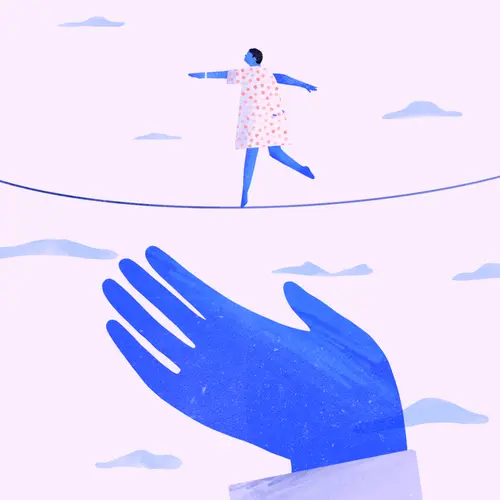Four years ago, Santa gave me the worst Christmas present I'd ever received. The day after the most joyous holiday of the year, my doctor called and delivered the news that I had prostate cancer.
Because my dad had prostate cancer decades before, I had been going to a urologist since I turned 40 to have a PSA [prostate-specific antigen test]. Recently, my PSA had shot up very high, to 29, and the following biopsy confirmed that I had a highly aggressive tumor. At 50 years old, I faced the biggest battle of my life.
I soon realized that I knew very little about the disease, so I turned to the Internet for answers. I may not have done the best search, but all the articles I read were discouraging -- no stories of survivors, just facts and data that led me to believe that cancer would be the death of me. I also had two friends who had died of the disease, so my confidence was pretty shaken.
I contacted an old acquaintance who had walked this road before. Hamilton Jordan, three-time cancer survivor and former White House Chief of Staff under President Jimmy Carter, was a busy man. But he wasn't too busy to cheer up a friend.
"Don't worry," Hamilton assured me. "They caught it early. You're going to beat this." He recommended that I visit his urologist at Emory Healthcare in Atlanta. And I did. Hamilton also dropped off a copy of his book, No Such Thing as a Bad Day, and in it he’d written a most moving personal letter which brings tears to my eyes every time I read it. After that, I was ready for a fight.
My Emory physician, Dr. Fray Marshall, and his team of urologists echoed Hamilton's optimism about my prognosis and advised me of my treatment options. Because of my age, surgery was the best option, and I decided to have the tumor removed. True, the downside of this choice is not so appealing. I tell men who are fearful of surgery they have three options: death, impotence, and incontinence -- pick two. This gets a chuckle, but it also allows me to explain that there are ways of getting through incontinence and impotence.
Before my own operation, however, I got more bad news. Dr. Marshall found a tumor in my kidney. When I heard this, I was devastated and probably scared for the first time. I recall I asked the old question, “Why?” and knew I needed to find the fight in my soul that I had when preparing for prostate surgery. A part of the strength came from my wife, who is incredibly strong. She comes from a family of doctors. She was kind when I needed a word of kindness and she could also give me that kick I needed when it was time to fight.
Even with this setback -- not one, but two cancers -- Dr. Marshall said the outlook was good. Ten days later, I had surgery to remove half my kidney. The kidney surgery was very difficult and painful, and the recovery was months. Every time I would ride in the car and hit a small bump in the road, I would get tears in my eyes. It was difficult getting any work done and I had to take a nap every day. After about three months, I started feeling fairly normal, but then it was time for prostate surgery. Getting over prostate surgery was easier and I was even able to attend my son’s little league baseball games with my catheter and bag!
I often tell people that prostate cancer saved my life. Had I not been diagnosed with prostate cancer, chances are the kidney tumor may never have been discovered. To this day, I thank Dr. Marshall for his thorough pre-op exam. And I also discovered the answer to my earlier “Why” question -- we are all mortal.
Today, I celebrate three years of being cancer-free. Through my experience, I've learned that beating cancer is a combination of things: good medicine, a good attitude, and good family and friends. These days I spend my free time serving as chairman of Emory's Urology Board of Advisors, raising money for prostate cancer research and being a mentor and pal to cancer patients. It's my way of saying “thank you” to the team of doctors, family, and friends that helped me along my cancer journey.
No man should die of prostate cancer. And yet about 30,000 men do die from the disease each year; it is the second leading cause of cancer death for men. This should not be the case. According to the American Cancer Society, every man over 50 should have a PSA each year. When the PSA number goes up or down, talk to your doctor. You may need additional tests. And if you have a family history of cancer like I did, you may need to begin screening earlier. That annual exam could save your life.
And if you are diagnosed, your life isn't over. I tell new cancer patients not to get sad or down but I do tell them to get angry; then you can fight -- and win -- like I did.
- Follow Chuck’s story on his blog, Winning the Prostate Cancer Battle.

